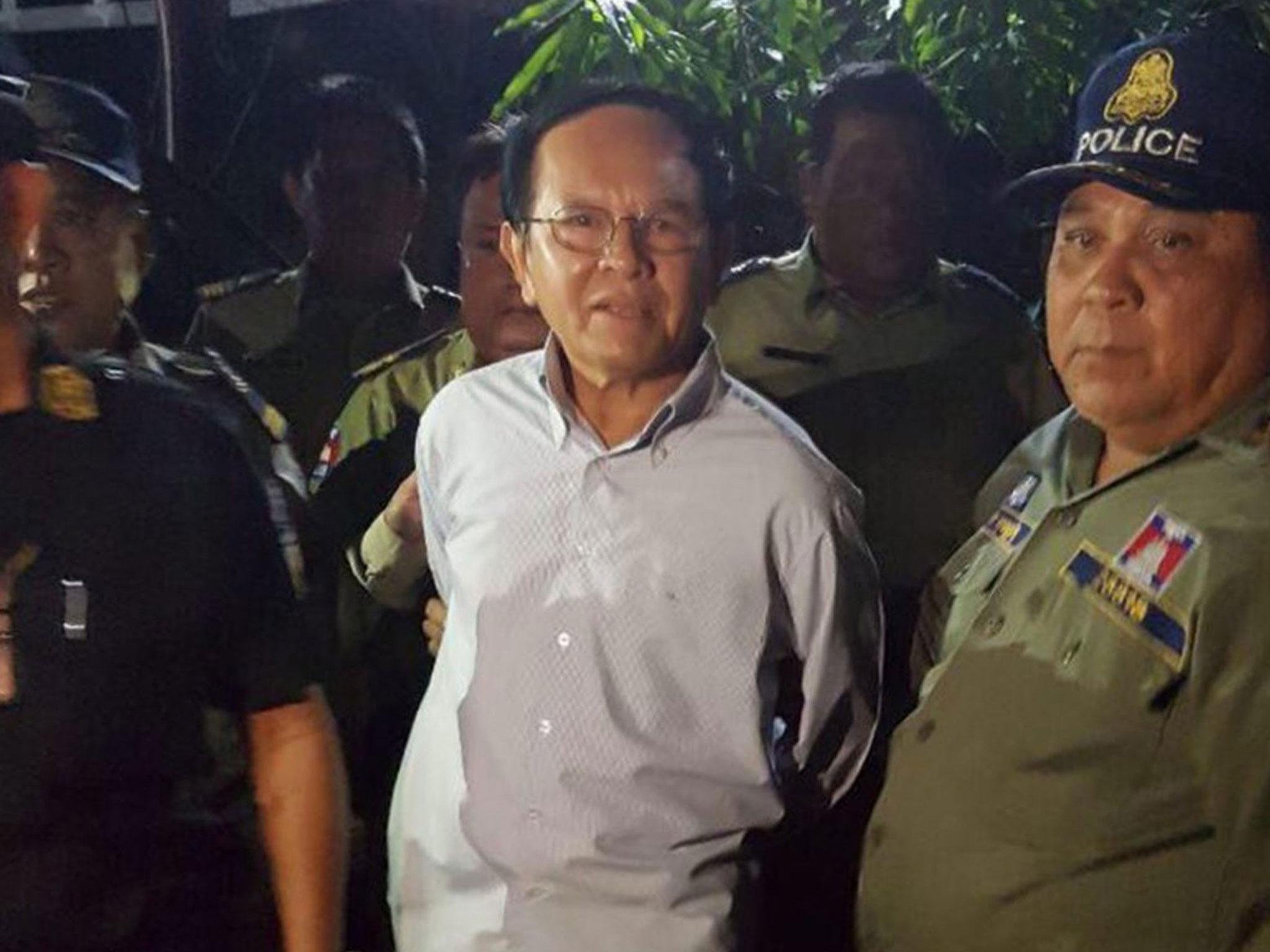Cambodia opposition leader Kem Sokha released on bail following ruling party's landslide election victory
'While it's a step forward that he's out of detention, he should never have been arrested in the first place. There's no justice served here'

Weeks after Cambodia’s ruling party won a landslide victory in a flawed election, the leader of the now-dissolved main opposition has been released on bail.
Kem Sokha’s arrest and subsequent jailing on treason charges was widely seen as being politically motivated. Experts view his release, and that of 14 other activists before him, as signs the government no longer believes its grip on power to be under threat.
A release order from the Phnom Penh Municipal Court claimed Kem Sokha was being bailed due to health reasons, and said further charges against him for treason would still be pursued.
It also revealed the conditions he will be released into, which effectively amount to house arrest.
The 65-year-old will not be allowed to meet with any former leaders or supporters of his party, take part in rallies, or indeed travel more than a few blocks from his home.
The order also specifies that Kem Sokha must not meet any foreigners, especially those connected with the case against him.
It comes as Hun Sen, who has ruled Cambodia for more than three decades, begins another five-year term as prime minister.
His party’s victory in July was widely seen as unfree and unfair because the only credible challenger, Kem Sokha’s Cambodia National Rescue Party, was dissolved by the pro-government courts and unable to contest the polls.
Hun Sen has a history of cracking down hard on his foes when he is challenged, then easing up when those he finds a threat have been politically neutered.
Last month, amid growing international pressure and criticism, Hun Sen’s government released 14 activists in what it described as a “humanitarian gesture”.
But Champa Patel, head of the Asia programme at Chatham House, said at the time it was “difficult to see these releases as some form of democratic progress”.
She said: “Should Hun Sen and the ruling party and their supporters feel his power was genuinely at risk, then one can imagine that he would easily revert back to repressive measures and arrests.”
The government cracked down on the opposition last year as the ruling party’s prospects for the general election were looking shaky. The opposition had made a strong showing in 2017 local elections, building on its surprisingly strong challenge in the 2013 general election.
Kem Sokha was arrested last September on the basis of years-old videos showing him at a seminar where he spoke about receiving advice from US pro-democracy groups. His party denied the treason allegation.
The arrest came after a months-long campaign to discredit him over an alleged sex scandal, which involved secretly taped phone conversations mysteriously posted on the internet.
Cambodia’s Supreme Court dissolved the Cambodia National Rescue Party last November, saying it was plotting with US assistance to overthrow the government. There was little evidence to support the ruling, which was seen as a key part of the campaign to ensure Hun Sen’s re-election.
At a bail hearing in March, Kem Sokha’s lawyers said he suffers from high blood pressure and diabetes, and had fallen sick in prison.
His lawyer, Chan Chen, told reporters on Monday that his client could not come out of his house to meet them and his supporters, and had not yet decided if he would seek medical treatment outside Cambodia. His release order indicates that he would need court approval for any travel abroad.
Chan Chen added that Kem Sokha would continue to be monitored by the government.
“While it’s a step forward that he’s out of detention, he should never have been arrested in the first place,” said Phil Robertson, deputy director for Asia of New York-based Human Rights Watch. “There’s been no justice served here, just the temporary release of an opposition political leader that prosecutors could undo at any time.”
He added: “We’re still a long way from a meaningful restoration of democracy and respect for human rights in Cambodia.”
Additional reporting by AP
Subscribe to Independent Premium to bookmark this article
Want to bookmark your favourite articles and stories to read or reference later? Start your Independent Premium subscription today.

Join our commenting forum
Join thought-provoking conversations, follow other Independent readers and see their replies